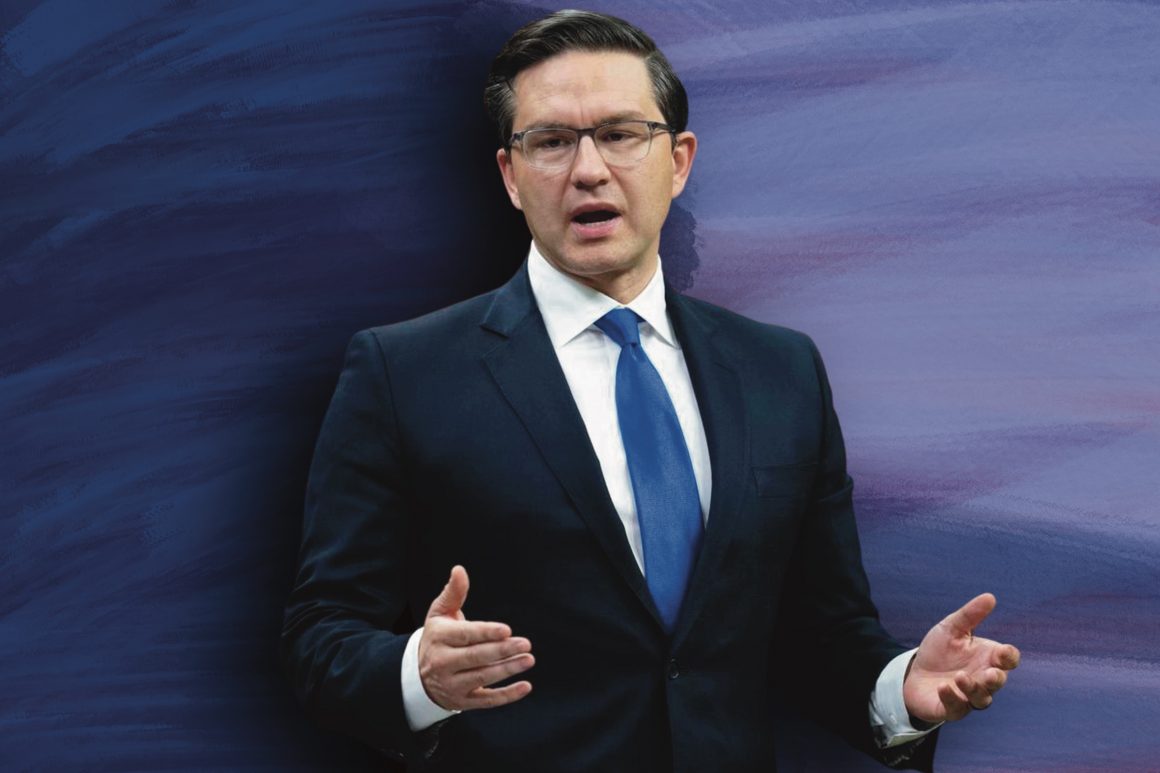
Pierre Poilievre: Made in Canada
By Radhya Comar, October 17 2022—
Politics work like a pendulum. In a democratic country, the pendulum swings back and forth from ideology to ideology without warning — sometimes right, sometimes left. Through seven years, several scandals and three federal elections, this pendulum seems all but tethered to Justin Trudeau’s left-of-centre Liberal Party. At least, that was until a few weeks ago when the Conservative Party of Canada named their new leader, Pierre Poilievre.
Poilievre attended Henry Wisewood High School and the University of Calgary. His Albertan education along with his middle class background have made him the province’s very own homegrown hero.
Born in 1979, Poilievre was one year old when Prime Minister Pierre Elliot Trudeau introduced the National Energy Program (NEP) in 1980. While the goal of this program was to strengthen the oil and gas industry across Canada, the NEP forced Alberta to distribute oil to the rest of the country at a discounted price. This had disastrous consequences on the province which included widespread devaluation of property in both Edmonton and Calgary, a six per cent rise in unemployment and an epidemic of bankruptcy. Alberta residents blamed their plight on the federal government and demanded freedom from these oppressive policies.
The sentiments at the time aligned perfectly with the conservative ideas of decreased government involvement, which greatly influenced Poilievre. Having grown up in the aftermath of the NEP, Poilievre embodies the beliefs that have represented the Conservative Party for decades and appeals to the number of Albertans who wish for more economic freedom. Poilievre’s promise “to innovate, compete and challenge ideas free from excessive government control,” stem from this desire for an independent Alberta.
It is this sentiment of independence, felt around the country, especially during the current economic downturn, that might just allow Poilievre to become the next Prime Minister of Canada. The ever-present discontent with the liberal government focuses heavily on the country’s state in the wake of the pandemic. The liberal government’s vaccine mandates, travel restrictions and current inflations are all main points of contention.
Poilievre is one of the main critics of the current liberal government. He regularly expresses his outrage on mandatory vaccines and went so far as to being associated with the trucker convoy. He vows to significantly ease travel restrictions and his most sensitive topic of discussion, inflation — or in his words “Justin-flation.” His discontent with Trudeau’s economic management, specifically during the pandemic, is well documented in quotes such as, “the cost of government is driving up the cost of living.”
It is these statements that have propelled Poilievre to the forefront of national politics. His unrelentless remarks unite conservatives both young and old against a common liberal enemy. This division is categorized in his own terms as the “have nots” vs. the “have-yachts.”
In recent weeks, Poilievre has shifted focus from criticism of Trudeau’s policies to promoting his own. Poilievre plans to curb the former by forcing metropolitan cities such as Vancouver and Toronto to increase new home building by 15 per cent. Meanwhile, his approach to stopping inflation is as simple as easing government spending which was “recklessly” increased during the COVID-19 pandemic. Also on the agenda is scrapping the carbon price — a tax paid by everyday citizens on the consumption of fossil fuels. The promises to decrease government spending, scrap supposedly unnecessary taxes and lower government involvement combine to point towards a traditional conservative government.
Meanwhile, the Trudeau government plans to raise carbon tax while the cost of living continues to rise. Despite early campaign promises to lower taxes, they have raised taxes for middle class families by eliminating beneficial tax credits such as those on education and textbooks. These changes have led to significant discontent among Canadian citizens.
With that being said, how much of the support being shown for Poilievre is a result of his political prowess? How much is a result of growing discontent? While examining the impact of a failed attempt at economic nationalism and a global pandemic, it is important to remind ourselves that it is during these critical junctures in our history that the pendulum swings. It is during these uncertain times where new leaders bid for power. These leaders, as charismatic and clever as they may be, are only as strong as the sentiments that they represent. As the current dissatisfaction with the liberal government grows stronger, so does Pierre Poilievre. While there is no predicting where the pendulum will swing in the next election, if it is pushed to the right, Pierre Poilievre will undeniably be the man to catch it.
This article is part of our Opinions section.
